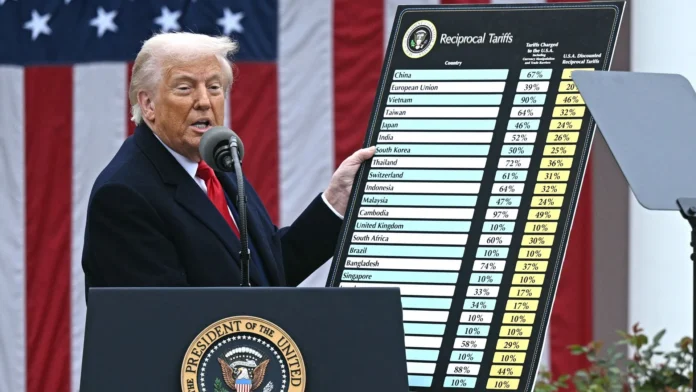U.S. President Donald Trump’s announcement of a 90-day suspension of heightened tariffs on multiple countries has offered temporary relief from escalating global trade tensions. Unveiled on Wednesday, the pause includes a universal 10 percent reciprocal tariff during ongoing talks, though friction with China deepened as tariffs on Chinese goods spiked to 125 percent after Beijing imposed 84 percent duties on U.S. imports. The European Union, in turn, halted its retaliatory tariffs, signaling a willingness to negotiate.
Economic experts view the pause as a vital chance to avert a potential global recession through dialogue. Ayokunle Olubunmi, Head of Financial Institution Ratings at Agusto & Co, noted that the period allows for negotiation but cautioned that resuming the trade dispute could destabilize the world economy, hitting Nigeria hard. A downturn, he warned, could erode government revenues, pushing Nigeria toward increased borrowing.
Dr. Ifeanyi Ubah, Head of Investment Research at Comercio Partners, highlighted Nigeria’s dependence on oil, with budgets based on $70 per barrel while prices linger in the $60s. Trade war-driven volatility in oil markets could force Nigeria to borrow more to cover revenue gaps, he said, adding that fiscal plans face strain amid uncertainty.
Marcel Okeke, former Chief Economist at Zenith Bank, stressed Nigeria’s limited ability to counter U.S. tariffs due to its economic and military constraints, advocating diplomacy as the only viable strategy to secure better trade terms.
Nigeria’s government has leaned toward dialogue over retaliation. On Monday, Minister of Industry, Trade, and Investment Jumoke Oduwole affirmed Nigeria’s commitment to constructive talks with the U.S. and the World Trade Organization to address shifting trade dynamics.
Globally, the pause has sparked cautious hope. On Thursday, White House economic adviser Kevin Hassett suggested progress toward trade deals with key partners. Meanwhile, the International Monetary Fund is preparing for increased funding requests from African nations impacted by widespread tariffs.
Though the pause provides respite, Nigeria’s economic fragility persists. With oil prices under pressure and global trade uncertainties unresolved, analysts urge swift diplomatic efforts to counter risks before the 90-day period ends, as a broader economic slump remains a threat.

